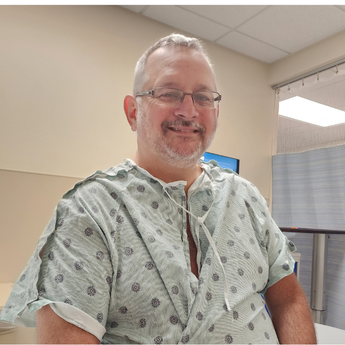By continuing to use our site, you consent to the processing of cookies, user data (location information, type and version of the OS, the type and version of the browser, the type of device and the resolution of its screen, the source of where the user came from, from which site or for what advertisement, language OS and Browser, which pages are opened and to which buttons the user presses, ip-address) for the purpose of site functioning, retargeting and statistical surveys and reviews. If you do not want your data to be processed, please leave the site.
The Voice of People With Breast Cancer
Information
Living with Breast Cancer
Senior Women
Statistically, a senior woman with breast cancer is defined as a person who has been diagnosed at 65 or older. The risk of breast cancer increases with age. In Canada, the median age of cancer diagnosis is between 65-69 years of age, and 88% of all new cases are diagnosed in individuals over the age of 50. An estimated 61% of cancer deaths also occur in people aged 70 years or older.
If you are over the age of 65, your treatment and care decisions may require different considerations than for younger women. Research indicates that senior women with breast cancer experience distinct challenges in the healthcare system. Many elderly women often delay reporting, or underreport symptoms and signs of breast cancer to their healthcare provider, which can lead to cancer being diagnosed at a more advanced stage.
Many seniors are affected by multiple disorders or diseases at the same time, in addition to breast cancer. Treatments for other disorders can impact your choices in breast cancer treatment and care as well. Senior women also face challenges with under treatment. Senior women are not always presented with the same treatment options as younger women because it is assumed that they will benefit less due to their age, despite studies showing that this is not true. It is important to discuss all of your options carefully with your healthcare team.
Senior women are also underrepresented in clinical trial research for breast cancer, leading to a limited knowledge base on how breast cancer should be treated and managed in elderly women. Researchers have speculated that many senior women are not informed of available clinical trials or are excluded for available trials due to toxicity profiles. If you are interested in learning more about clinical trials, please visit the Clinical Trials section.
There is also some evidence to suggest that many older women, when faced with a breast cancer diagnosis, have fewer supportive networks to rely on, than younger women. This can impact a senior woman’s emotional and social reaction to a breast cancer diagnosis. If you are interested in learning more about accessing support in your community, please visit the Emotional Well-being section.
Breast cancer is more commonly diagnosed in senior women than it is in women under the age of 65. It can affect people differently depending on their age. You may or may not experience any of these considerations but it is important to keep them in mind as you go through your cancer journey. To help navigate a diagnosis as an older adult, or as the caregiver of an older adult with breast cancer, we created Considerations of Care: A guide for older adults with breast cancer and their caregivers.
The Canadian Cancer Society has a database that can be used to find local support services in your area. You can access it below:
SHARE




